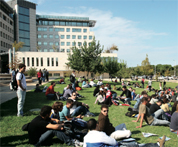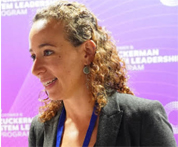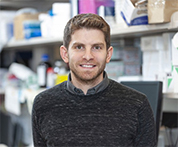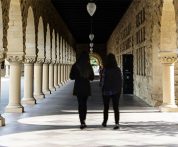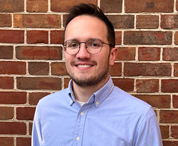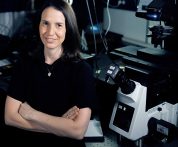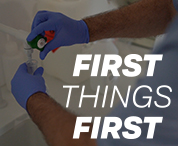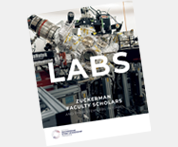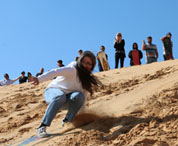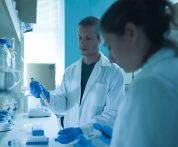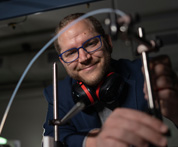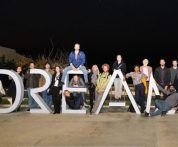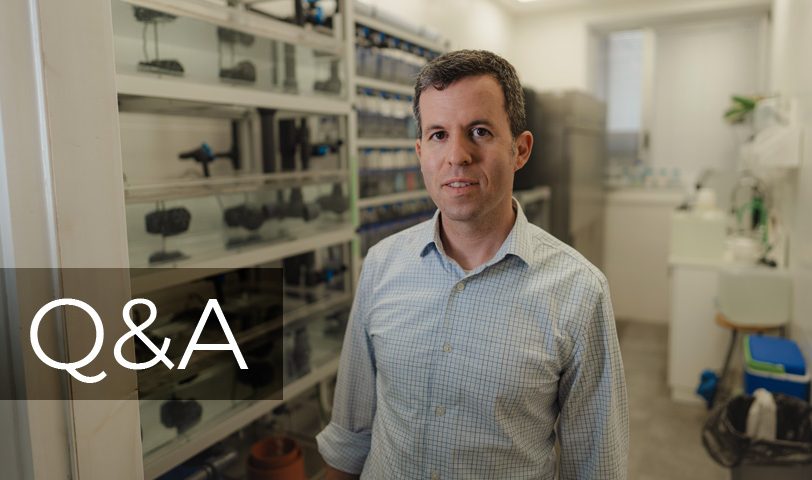Dr. Omri Wurtzel is member of the faculty at Tel Aviv University’s School of Neurobiology, Biochemistry and Biophysics. His laboratory studies regeneration, the process of regrowing missing tissues. Following an injury, regenerative organisms activate molecular and cellular processes that lead to the formation of new tissues. Despite the importance of regeneration to human health and decades of regeneration research, fundamental questions remain: Why do certain animals regenerate while other species cannot? Why can certain tissues (e.g., the liver) regrow, whereas other tissues have very limited healing potential? Dr. Wurtzel and his team study these questions using organisms that regenerate extremely quickly, work extensively with flatworms that can regrow any missing part of their bodies – including their brain – in less than a week. His lab builds on research he began during his postdoc at the Whitehead Institute for Biomedical Research in Cambridge, Massachusetts.
Please describe your current research, the focus of your lab, and the practical implications of your research
We study how organs can or may regrow following injuries, such as amputations and other accidents, or recover damages resulting of aging or degenerative diseases. Most organisms age and die at some point. Our goal is to understand the process of why it happens, and what approach we can take to intervene or change the course of how we recover from injures. Eventually our cells age and become ineffective in replacing tissues. These are questions that date back to the 18th century and are, in part, a foundation of experimental biology. We study two families of regenerative organisms. One is flatworms, a widespread model for studying regeneration. You can cut away any part of our flatworms and they will regrow the missing tissues. We are interested in the fundamental mechanism that allows the tissues to grow back in a highly controlled manner.
The other organism, a highly regenerative ascidian called Polycarpa mytilgera was discovered by a marine biologist while diving in Eilat. It is completely different from the flatworm, but it can similarly regenerate any part of its body.

Through our experiments we can compare these two organisms: learn what is required for regeneration in both organisms; what strategies each uses to grow and recover, and how these strategies evolved.
One of the greatest challenges in experimental biology is the setup cost of a new system. It is so high to have an experimental system working. We enjoy the fact that there only handful model organisms for studying regeneration, and therefore, the potential contribution to the field is substantial.
Regeneration usually requires the production of new cells, frequently from stem cells. We manipulate stem cells inside the organism, not in a dish, and see study the consequence of our perturbations inside the animal. Therefore, we acquire an accurate representation of a very complex biological process. In biology the Holy Grail is seeing the science the way it actually happens.
Our scientific approaches include molecular biology, in vivo analysis and bioinformatics. We employ a comparative approach, studying the basis for regeneration of two different organisms and their major differences in regenerative strategies. A uniqueness of our lab is our background and investment in bioinformatics. I find this to have many advantages in getting a more complete picture. We plan our experiments so we can measure tens of thousands of parameters, and using sophisticated data analysis, we can pinpoint those results that are important.
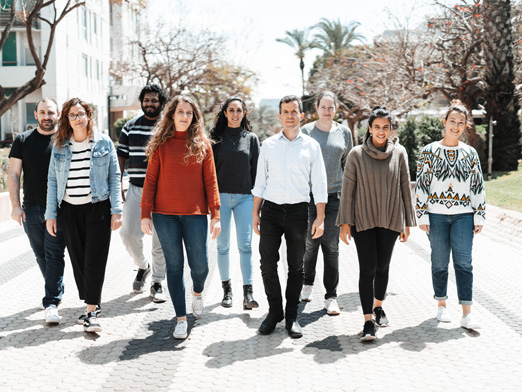
What do you enjoy most about your research?
The most satisfying part of my work is looking at data and finding ways to interpret it to arrive at a conclusion. I enjoy the interactions, the way we communicate, the teaching. I find it to be intellectually satisfying. Ultimately, my favorite part is the experimental biology. It suits me well. There are so many parameters to explore, predictions and ideas, but then the results are usually different from our expectations. We examine what is wrong with the model and design the next experiment.
What does it mean to you to be part of the Zuckerman Faculty Scholars Program?
Being part of a group that has such exceptional scientists motivate me to hold myself to a higher standard. If the ability is there, being in a group that is exceptional will motivate me to do more. I enjoy the collegial setting, where people from different universities are able to share their challenges and achievements. And for me, having a peer group that is excellent is important for my own development. I have formed valuable relationships, beyond the other faculty scholars I knew from before. The Zuckerman Program provides additional opportunities to interact with other scholars, and I’m very grateful for that.
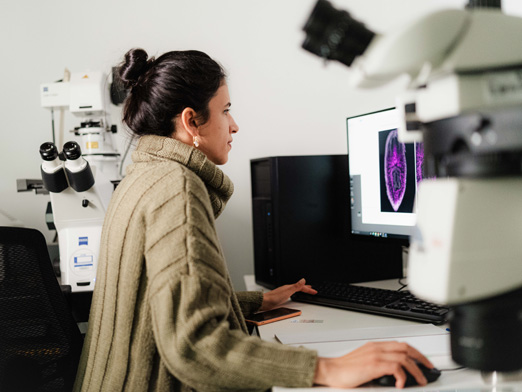
What inspired you to pursue this area of research?
I was a software engineer and I went to medical school. This was my first exposure to biology, but with an engineering focus. It was a nice coincidence – I went to a lecture in my third year of med school and sent the speaker an email to ask to join him for a project. He was then a postdoc at Berkley, who later joined the Faculty at the Weizmann Institute. After finishing the project, I joined his lab at Weizmann and did my PhD there, and that’s how I got introduced to science. For my postdoc I switched fields entirely. Medical school was instrumental in giving me fundamental knowledge in biology, but didn’t give me the background on how to become a scientist, even though the medical school faculty are scientists.
Where do you hope your research will have the greatest impact?
I am passionate about understanding what makes cells divide and acquire an identity. There are outstanding labs in Israel studying this question using different organisms. Our contribution is understanding this question in a true biological setting, where cells acquire an identity in a regulated manner. Eventually this could lead to generating any kind of cell.
There are certain organisms that can generate cells whenever they need. A part of their survival mechanism is integrated into the way they live. We don’t know the reason for it, but humans can’t do this.
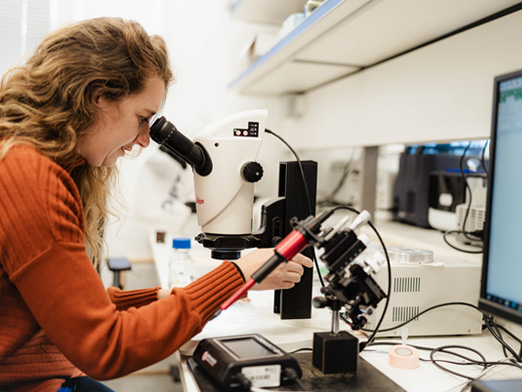
 ISRAELI COUNCIL FOR HIGHER EDUCATION
ISRAELI COUNCIL FOR HIGHER EDUCATION MIT-Israel Zuckerman STEM Fund for Faculty Collaboration
MIT-Israel Zuckerman STEM Fund for Faculty Collaboration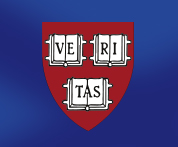 The Zuckerman Travel and Research STEM Fund at Harvard
The Zuckerman Travel and Research STEM Fund at Harvard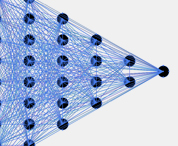 Zuckerman AI Fund at Technion
Zuckerman AI Fund at Technion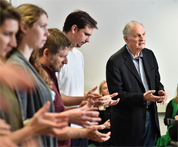 Alan Alda Communicating Science
Alan Alda Communicating Science Zuckerman Institute – ScienceAbroad
Zuckerman Institute – ScienceAbroad Zuckerman Institute – America-Israel Friendship League partnership
Zuckerman Institute – America-Israel Friendship League partnership



